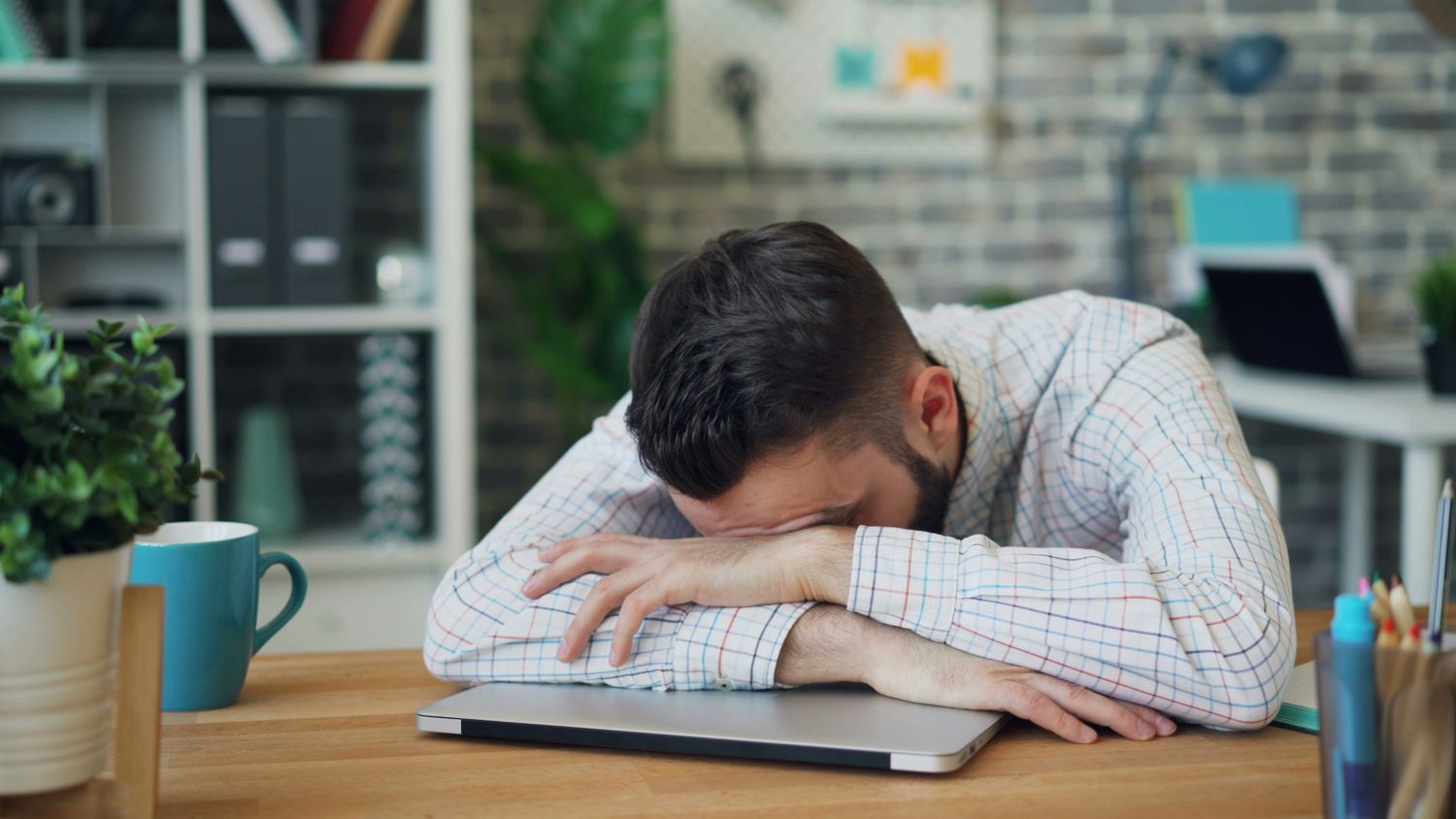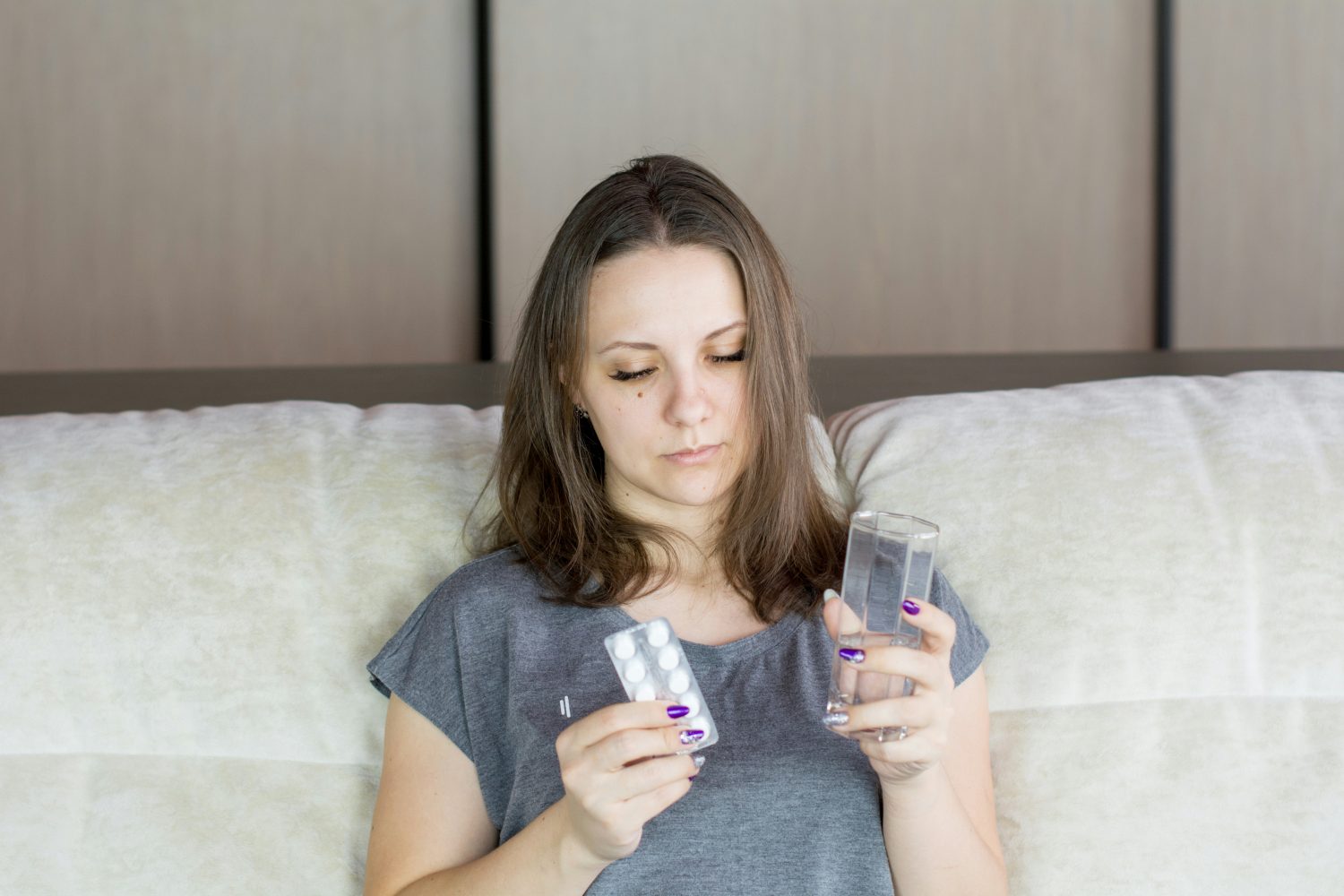Headaches – causes, treatment and prevention
Headaches are a common health problem that can affect people of all ages. They can range from mild discomfort to intense pain and have a variety of causes. Identifying and treating headaches is important to improve quality of life and avoid serious health problems. This article explains the causes, treatment options and prevention strategies for headaches to help sufferers find effective solutions and alleviate their discomfort.
Causes of headaches
Headaches can have numerous causes, which are categorised into primary and secondary headaches.
Primary and secondary headaches
Primary headaches:
- Migraine: a neurological disorder that is often accompanied by severe, one-sided headaches, accompanied by nausea, vomiting and sensitivity to light.
- Tension headaches: The most common type, characterised by dull, pressing pain often caused by stress or poor posture.
- Cluster headaches: Rare but extremely painful headaches that occur in periodic attacks and usually affect one side of the head.
Secondary headaches:
- Medical causes: These headaches are a symptom of another underlying condition such as infection, high blood pressure or brain injury.
- Overuse of medication: Regular use of painkillers can lead to an increase in the frequency of headaches.
Frequent triggers
Stress: Physical or emotional stress often leads to tension in the muscles and blood vessels, which can trigger headaches.
Dehydration: Insufficient fluid intake can lead to constriction of the blood vessels in the brain, which can cause headaches.
Poor posture: An unergonomic sitting position or sitting in an uncomfortable position for a long time can cause tension and headaches.
Medical causes
Migraine: A complex neurological disorder in which certain triggers such as certain foods, hormonal changes or sensory stimuli can trigger a migraine attack.
Tension headaches: These are often caused by muscle tension in the neck and shoulder area and can be exacerbated by stress, anxiety or depression.
Cluster headaches: Although the exact cause is unknown, experts suspect that the hypothalamus, a part of the brain, plays a role. These headaches occur suddenly and without warning.
Identifying the specific cause of headaches is crucial for effective treatment and prevention. Both primary and secondary headaches can be triggered by various factors that often interact with each other. It is important to recognise individual triggers and take appropriate measures for relief and prevention.

Symptoms of headaches
Headaches can manifest themselves in a variety of ways, depending on the cause and type. The general symptoms and the differences between migraine, tension headaches and cluster headaches are detailed here:
General symptoms
- Pain: The intensity can vary from mild to severe and affects different regions of the head.
- Nausea: Common in migraines, sometimes also in other types of headache.
- Sensitivity to light: Particularly with migraines, but can also occur with other headaches.
- Concentration problems: Difficulty focussing or thinking clearly.
- Fatigue: Increased fatigue and general malaise.
Differences between migraines, tension headaches and cluster headaches
| Symptom | Migraine | Tension headache | Cluster headaches |
|---|---|---|---|
| Pain intensity | Moderate to severe, pulsating | Mild to moderate, pressing | Very strong, drilling |
| Pain localisation | Mostly unilateral | On both sides | Unilateral, often around the eye |
| Duration | 4 to 72 hours | 30 minutes to several days | 15 minutes to 3 hours |
| Accompanying symptoms | Nausea, vomiting, sensitivity to light and sound | Slight sensitivity to light and sound | Lacrimation, blocked nose, sweating |
| Frequency | Varies, often episodic | Frequent, can be chronic | Daily for weeks to months |
| Triggers | Stress, certain foods, hormonal changes, weather | Stress, poor posture, eye strain | Unknown, often cyclical |
Migraine
- Pain character: Pulsating or throbbing, often accompanied by nausea and vomiting.
- Accompanying symptoms: Sensitivity to light (photophobia), sensitivity to sound (phonophobia) and sometimes aura (visual or sensory disturbances before the onset of pain).
- Duration: Attacks can last from 4 hours to 72 hours.
- Localisation: Mostly unilateral, but can also occur on both sides.
Tension headaches
- Pain character: Pressing or pulling, often described as a tight ring around the head.
- Accompanying symptoms: Rarely with nausea or sensitivity to light.
- Duration: Can last from 30 minutes to several days.
- Localisation: On both sides, often affecting the forehead, temples and neck region.
Cluster headache
- Pain character: Very intense, drilling or burning.
- Accompanying symptoms: Lacrimation, redness of the eye, blocked or runny nose on the affected side, sweating of the face.
- Duration: Short, from 15 minutes to 3 hours, often occurs several times a day.
- Localisation: Unilateral, usually around the eye.
This detailed overview helps to recognise the type of headache and to choose the appropriate treatment. If the symptoms are severe or occur frequently, it is advisable to consult a doctor.
Tips against headaches
General tips for relief
1. Drink enough fluids:
- Dehydration is a common cause of headaches. Make sure you drink enough water.
2. Take regular breaks:
- When working at a computer or reading for long periods of time, take regular breaks to relax your eyes and neck.
3. Relaxation techniques:
- Methods such as yoga, meditation or progressive muscle relaxation can help to reduce stress and relieve tension.
4. Sleep hygiene:
- Ensure a regular sleep rhythm and sufficient sleep duration to help the body recover.
5. Nutrition:
- Make sure you eat regular meals and avoid triggers such as caffeine, alcohol and highly processed foods.
Immediate measures for acute pain
1. Rest and darkness:
- Lie down in a quiet, dark room and close your eyes. This can be particularly helpful for migraines.
2. Cold or heat applications:
- Place a cold flannel on your forehead or use a heating pad on the back of your neck, whichever helps you better.
3. Gentle massage:
- Gently massage your temples, neck and shoulders to relieve tension.
4. Breathing exercises:
- Deep breathing exercises can help relax the body and relieve pain.
5. Painkillers:
- Over-the-counter painkillers such as paracetamol, ibuprofen or aspirin can be taken if necessary. Pay attention to the recommended dosage and possible side effects.
6. Essential oils:
- Lavender or peppermint oil can be applied to the temples to relieve headaches.
7. Caffeine:
- A cup of coffee or tea can help relieve headaches, especially if they are caused by caffeine withdrawal.

Treatment of headaches
Home remedies
Headaches can often be relieved with natural remedies and home remedies. Here are some tried and tested methods:
Hydration and dietary changes
1. Drink enough:
- Dehydration is a common cause of headaches. Drink at least 2-3 litres of water a day to stay hydrated.
2. Change your diet:
- Avoid triggers: Some foods such as chocolate, cheese, red wine and caffeinated drinks can trigger headaches.
- Balanced diet: Make sure you eat a balanced diet with plenty of fruit, vegetables, wholemeal products and lean protein.
Relaxation techniques
1. Meditation:
- Regular meditation practice can help reduce stress and relieve headaches. Try to meditate for 10-15 minutes a day.
2. Yoga:
- Certain yoga poses, such as child’s pose (Balasana) or forward bend (Uttanasana), can help relax muscles and relieve headaches.
Application of heat and cold
1. Heat applications:
- A warm bath or shower can help relax muscles and relieve headaches. You can also use a hot water bottle or a heating pad on the neck and shoulders.
2. Cold applications:
- Place a cold flannel or ice pack on your forehead or neck to reduce swelling and relieve pain.
Herbal teas and essential oils
1. Herbal teas:
- Peppermint tea: Has cooling properties that can relieve headaches.
- Ginger tea: Can help reduce inflammation and relieve pain.
- Camomile tea: Has a calming and relaxing effect.
2. Essential oils:
- Lavender oil: A few drops applied to the temples can help relieve headaches.
- Peppermint oil: Applied to the temples or the back of the neck, has a cooling effect and can relieve pain.
Food supplements
1. Magnesium:
- Importance: magnesium can be helpful in the prevention and treatment of headaches, especially migraines.
- Sources: Supplements or foods such as nuts, seeds and green leafy vegetables.
2. Vitamin B2 (riboflavin):
- Importance: may reduce the frequency and severity of migraine attacks.
- Sources: Supplements or foods such as eggs, dairy products and almonds.
3. Coenzyme Q10:
- Significance: A powerful antioxidant that may help improve energy production in cells and reduce headaches.
- Sources: Supplements or foods such as meat and fish.
- Meaning: Can reduce inflammation and therefore relieve headaches.
- Sources: Fish oil, linseed oil and chia seeds.
Drug treatment for headaches
Overview of headache tablets
1. Paracetamol:
- Use and dosage: 500-1000 mg every 4-6 hours, maximum 4000 mg per day.
- Precautions: Overdose may cause liver damage. Do not combine with alcohol.
2. Ibuprofen:
- Use and dosage: 200-400 mg every 4-6 hours, maximum 1200 mg per day without medical supervision.
- Precautions: May irritate the stomach. Do not take on an empty stomach.
3. Aspirin:
- Usage and dosage: 500-1000 mg every 4-6 hours, maximum 4000 mg per day.
- Precautions: May irritate the stomach and thin the blood. Not suitable for children.
Headaches can be relieved by various home remedies, dietary supplements and drug treatments. Adequate hydration, a balanced diet, relaxation techniques and the application of heat and cold are proven methods of relieving headaches. Herbal teas, essential oils and certain dietary supplements offer natural alternatives to pain management. If necessary, over-the-counter painkillers such as paracetamol, ibuprofen or aspirin can also be taken, taking into account the recommended dosage and possible side effects.

Prevention of headaches
To prevent headaches, certain lifestyle changes and prevention strategies are crucial. Here are some important measures:
Lifestyle changes and prevention
1. Regular exercise and a healthy diet:
- Exercise: Regular physical activity, such as jogging, swimming or yoga, can help relieve tension and promote overall health.
- Diet: A balanced diet with plenty of fruit, vegetables, wholemeal products and lean protein can reduce the risk of headaches. Avoid foods that can trigger headaches, such as alcohol, caffeine, chocolate and highly processed foods.
2. Sleep hygiene:
- Regular sleep schedule: go to bed at the same time every day and get up at the same time, even on weekends.
- Sleep environment: Ensure a quiet, dark and cool sleeping environment. Avoid electronic devices in the bedroom.
- Sleep duration: Make sure you get enough sleep, ideally 7-9 hours per night.
3. Stress management:
- Relaxation techniques: Incorporate techniques such as meditation, progressive muscle relaxation and breathing exercises into your daily routine to reduce stress.
- Time management: Plan your tasks and breaks effectively to avoid overwork and stress.
- Hobbies and leisure activities: Make time for activities that bring you joy and help you relax.
When should you see a doctor?
It’s important to know when to see a doctor if you have a headache. Here are some warning signs and reasons to see a doctor:
Warning signs of serious illness
1. Sudden, severe headache:
- A sudden, very intense headache can indicate a serious medical condition, such as a brain haemorrhage or aneurysm.
2. Accompanying symptoms:
- Headaches accompanied by fever, neck stiffness, confusion, speech or visual disturbances, weakness, numbness or seizures may indicate serious conditions such as meningitis or a stroke.
3. Change in headache pattern:
- If there is a sudden change in the type, frequency or intensity of your headaches, you should see a doctor. This may indicate a new cause or a worsening of an existing condition.
4. Headaches following a head injury:
- Headaches that occur after a fall or blow to the head should always be checked out by a doctor to rule out injuries such as concussion or haemorrhage.
5. Persistent or chronic headaches:
- If you have regular headaches that last longer than a few days or affect your quality of life, you should see a doctor to determine the cause and find appropriate treatment.
Diagnosis and treatment by specialists
1. Medical examination:
- A doctor will take a comprehensive medical history and perform a physical examination. They will look for specific patterns and triggers of the headache.
2. Diagnostic tests:
- Depending on the symptoms, further diagnostic tests may be required, such as blood tests, imaging tests (e.g. MRI, CT scan) or neurological examinations to determine the exact cause of the headache.
3. Treatment options:
- Based on the diagnosis, the doctor may recommend appropriate treatment, which may include drug therapies, physiotherapeutic measures, lifestyle changes or specialised treatments.
Conclusion
Headaches are a common problem that can be triggered by a variety of factors, including stress, lack of sleep, dehydration and medical conditions. It is important to recognise the specific causes and symptoms in order to take appropriate action for relief. Home remedies such as hydration, relaxation techniques, diet and supplements can often help. However, if symptoms persist or are severe, a doctor should be consulted. Preventative measures such as a balanced diet, regular exercise and effective stress management can reduce the frequency and intensity of headaches.
